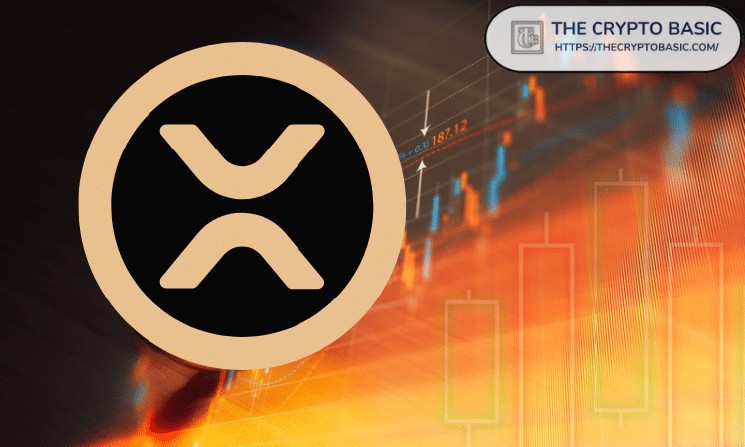Expert Explains How XRP Could Benefit from the Launch and Adoption of Ripple’s RLUSD Stablecoin

Ripple is rapidly advancing its plans to introduce its new stablecoin, Ripple USD (RLUSD), and this development could have profound implications for XRP.
The stablecoin, backed by the U.S. dollar, is currently in beta testing on the XRP Ledger and Ethereum, according to Ripple’s official updates. Interestingly, some pundits have speculated that Ripple could be looking to replace XRP with RLUSD as the bridge asset for ODL transactions.
In response to this, Ripple CTO David Schwartz maintained that Ripple aims to allow the use of XRP in areas where it is optimal.
Potential Impact on XRP Utility
Notably, recent discussions suggest that while RLUSD’s launch could streamline cross-border payments and boost liquidity, some believe that XRP’s utility might also increase through its integration into these transactions.
In a commentary on X, crypto YouTuber Eri noted similarities between XRP’s role on the XRPL and how Ethereum’s ETH serves as a gas token. She stressed that, just as ETH is critical for Ethereum’s transactions, XRP plays a vital role as gas for transactions on the XRP Ledger.
Just as #ETH is used for gas, #XRP is also used for gas (among other things). Since the SEC Docs explained ODL is price neutral, bring on as much of that stablecoin gas transaction activity on the #XRPL Mainnet as possible. Trillions please.
Every currency would be nice.— 🌸Crypto Eri 🪝Carpe Diem (@sentosumosaba) September 8, 2024
According to Eri, RLUSD could bring trillions of transactions onto the XRPL Mainnet, covering multiple currencies. Remarkably, such a development is likely to boost the utility of XRP, being the gas token of the XRPL.
Importantly, she noted that Ripple’s On-Demand Liquidity (ODL) solution is “price neutral,” per disclosures from Ripple and documents in the SEC case. This means that ODL activities do not directly impact XRP’s price. Nevertheless, the increase in network activity could indirectly create more demand for XRP as a utility token.
This commentary triggered discussions. One community member asked Eri about earlier claims by former Ripple employee Bob Way, who suggested that market makers could raise XRP’s price by leveraging ODL volume for profit through fees and spreads.
Eri clarified that the delivery model for ODL had significantly changed since those claims, signaling that the current iteration of ODL is focused more on efficiency than speculative price impact.
The Ripple Stablecoin
Ripple first announced RLUSD earlier this year, and the stablecoin is expected to launch in the next few weeks. Testing began on the XRP Ledger Mainnet and Ethereum, marking a major milestone in Ripple’s goal of expanding liquidity and institutional use cases.
RLUSD seeks to provide stability by pegging its value to the U.S. dollar and is part of Ripple’s larger vision to facilitate more efficient cross-border payments. With regulatory approval still pending, Ripple is ensuring that RLUSD meets the highest standards of security before its public release.
Ripple’s focus on regulatory compliance sets RLUSD apart from other stablecoins like USDT, which have faced scrutiny. For instance, several exchanges such as Uphold have limited access to USDT on the back of MiCA.
While Ripple maintains that ODL does not directly affect XRP’s price, the sheer volume of transactions that RLUSD could bring to the XRP Ledger could enhance XRP’s role within the ecosystem. Increased usage of XRP for gas fees could lead to a rise in demand, which could positively influence the token’s market value over time.





 Bitcoin
Bitcoin  Ethereum
Ethereum  Tether
Tether  Dogecoin
Dogecoin  USDC
USDC  Cardano
Cardano  TRON
TRON  Chainlink
Chainlink  Stellar
Stellar  Hedera
Hedera  LEO Token
LEO Token  Bitcoin Cash
Bitcoin Cash  Litecoin
Litecoin  Cronos
Cronos  Ethereum Classic
Ethereum Classic  Monero
Monero  Dai
Dai  Algorand
Algorand  OKB
OKB  Cosmos Hub
Cosmos Hub  Gate
Gate  Stacks
Stacks  Theta Network
Theta Network  Maker
Maker  KuCoin
KuCoin  Tezos
Tezos  IOTA
IOTA  NEO
NEO  Polygon
Polygon  Zcash
Zcash  Tether Gold
Tether Gold  Synthetix Network
Synthetix Network  TrueUSD
TrueUSD  Dash
Dash  0x Protocol
0x Protocol  Zilliqa
Zilliqa  Holo
Holo  Siacoin
Siacoin  Basic Attention
Basic Attention  Enjin Coin
Enjin Coin  Qtum
Qtum  Ravencoin
Ravencoin  NEM
NEM  Hive
Hive  Decred
Decred  Ontology
Ontology  Bitcoin Gold
Bitcoin Gold  DigiByte
DigiByte  Huobi
Huobi  Waves
Waves  Lisk
Lisk  Status
Status  Nano
Nano  Steem
Steem  Numeraire
Numeraire  Pax Dollar
Pax Dollar  BUSD
BUSD  OMG Network
OMG Network  Ren
Ren  Bitcoin Diamond
Bitcoin Diamond